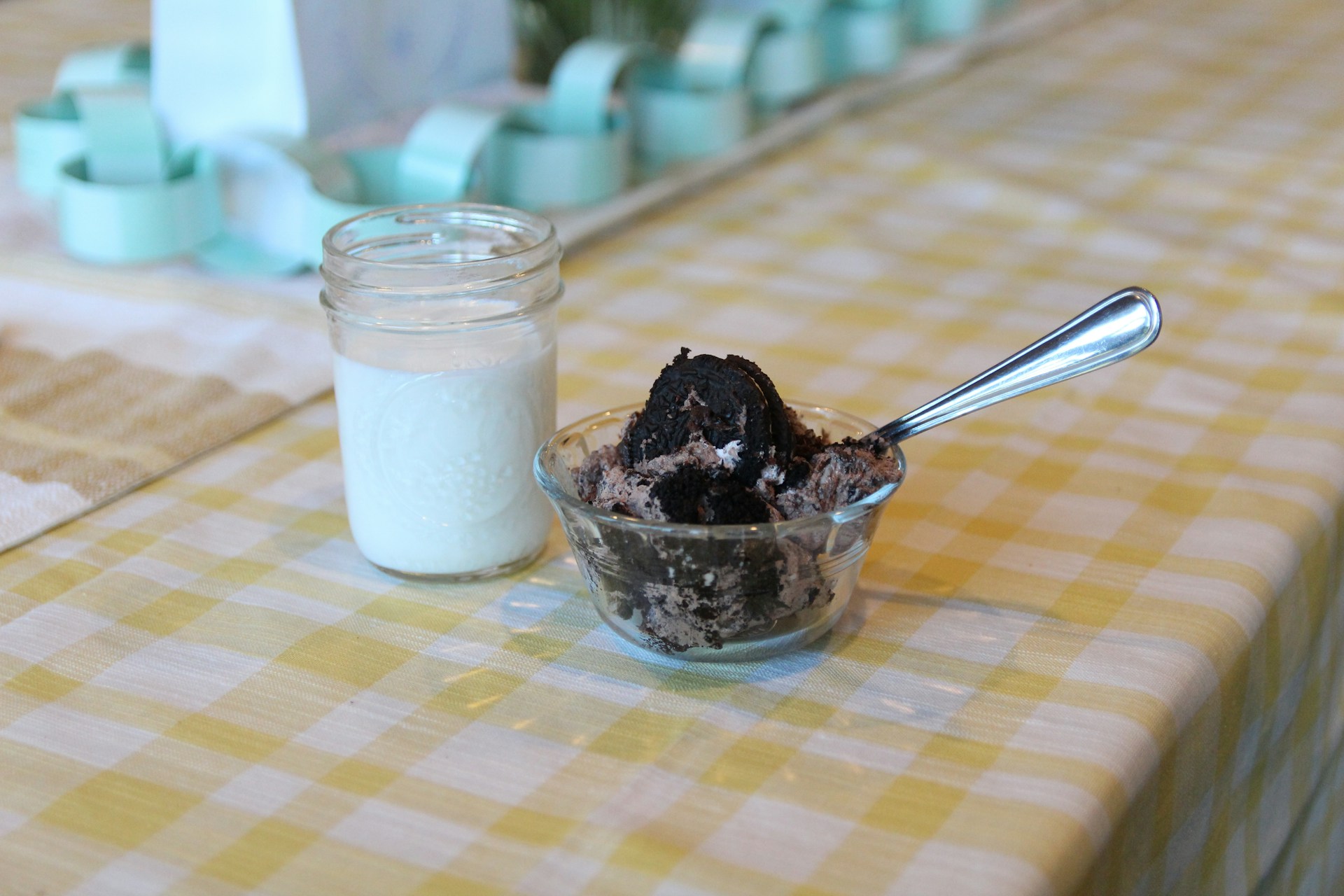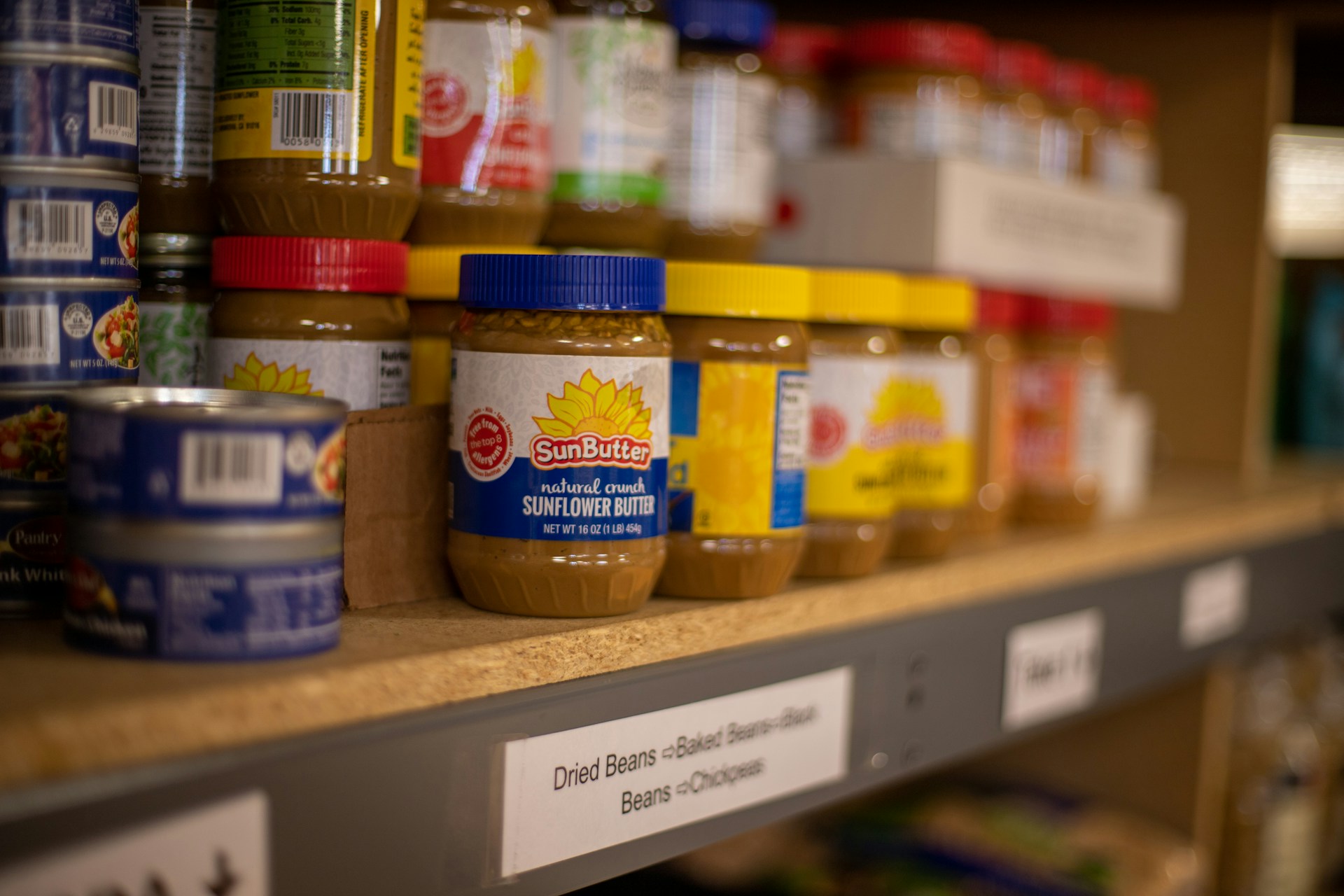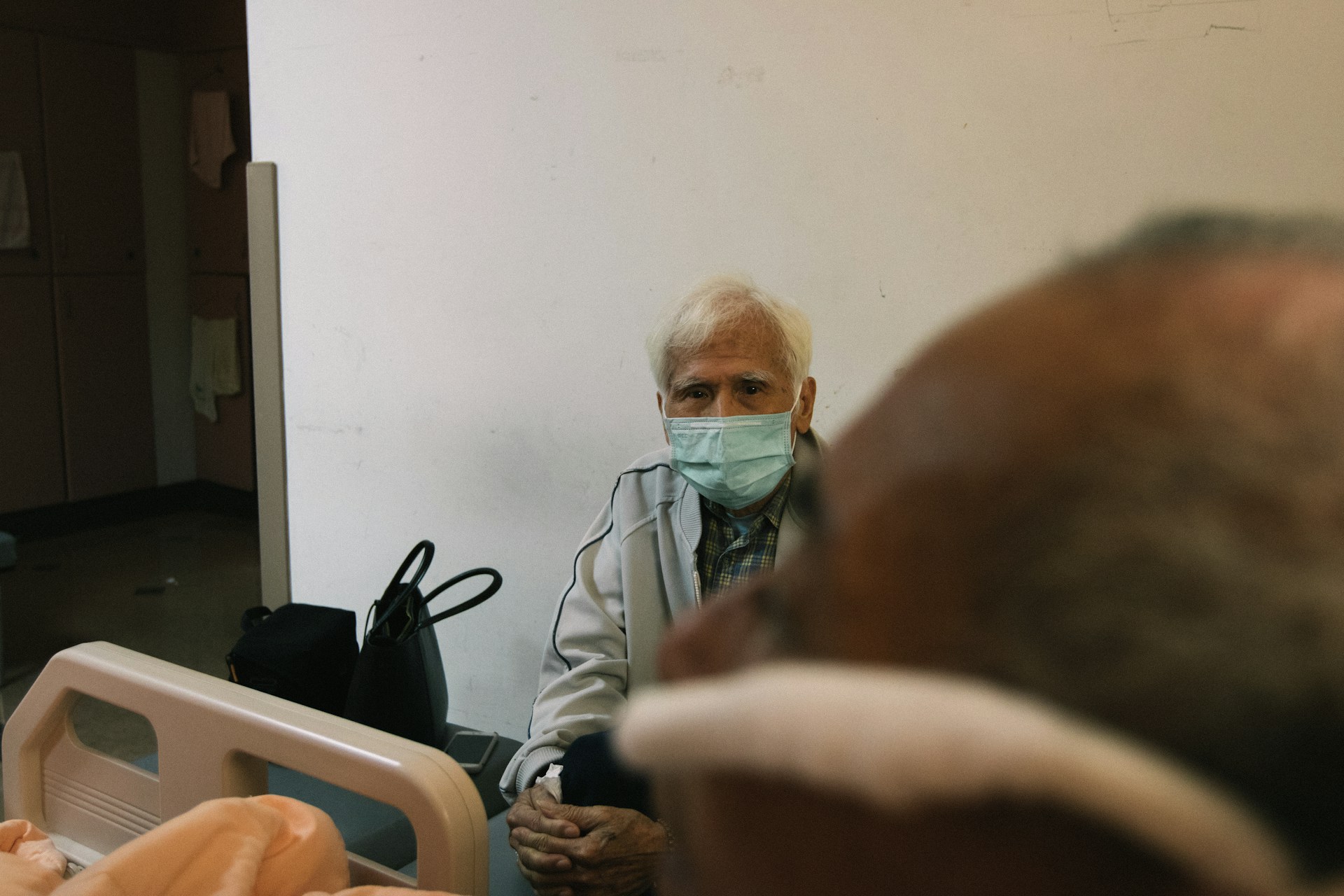Encouraging Healthcare Childbirth to Increase Exclusive Breastfeeding: Evidence from Madurese, Indonesia
Mendorong Persalinan di Pelayanan Kesehatan untuk Meningkatkan Pemberian ASI Eksklusif: Bukti dari Masyarakat Madura, Indonesia

Background: Exclusive breastfeeding (EBF) is critical to starting life in its earliest phases. Breast milk alone provides adequate nutrition for infants from delivery until six months. The EBF achievement in Madura in 2022 was only 37.9%, far from the target set by the World Health Organization of 50% in 2025.
Objectives: The study examined the role of birthplace on EBF in Madura Island in Indonesia.
Methods: A cross-sectional study of 990 Madurese children was conducted. The researcher looked at 11 control variables, including regency, residence, mother age, marital status, education, occupation, wealth, antenatal care (ANC), early initiation breastfeeding (EIBF), child's age, and sex, and EBF activity as the outcome variable and childbirth as the exposure variable. As the last step, the author performed a binary logistic regression test.
Results: Madura Island had a 37.9% EBF proportion. Meanwhile, 90.1% of births take place in healthcare facilities. According to the birthplace, mothers who gave birth in healthcare facilities were 1.939 times more likely to perform EBF than those who gave birth in non-healthcare facilities (AOR 1.939; 95% CI 1.854-2.037). Moreover, the study also found eleven control variables related to EBF among Madurese.
Conclusions: Birthplace was related to EBF among Madurese. To achieve EBF, childbirth in healthcare facilities was almost twice that of childbirth in non-healthcare facilities. The study recommends only giving birth in a health facility. On the other hand, increasing the intensity of contact with health services during pregnancy and childbirth is necessary.
WHO. Breatsfeeding. https://www.who.int/health-topics/breastfeeding (2024).
Couto, G., Dias, V. & Oliveira, I. Benefits of exclusive breastfeeding: An integrative review. Nurs. Pract. Today 7, 245–254 (2020). DOI 10.18502/npt.v7i4.4034.
Laksono, A. D., Wulandari, R. D., Ibad, M. & Kusrini, I. The effects of mother ’ s education on achieving exclusive breastfeeding in Indonesia. 1–6 (2021). DOI 10.1186/s12889-020-10018-7.
Unicef & World Health Organization. Global Breastfeeding Scorecard 2023. https://www.unicef.org/media/150586/file#:~:text=Figure 1.-,Trends in the global prevalence of exclusive,0–5 months of age.&text=Globally rates of exclusive breastfeeding,target of 50%25 by 2025. (2023).
Kavle, J., LaCroix, E., Dau, H. & Engmann, C. Addressing barriers to exclusive breast-feeding in low- and middle-income countries: a systematic review and programmatic implications. Public Health Nutr. 20, 1–15 (2017). DOI 10.1017/S1368980017002531.
Jama, A. et al. Exclusive breastfeeding for the first six months of life and its associated factors among children age 6-24 months in Burao district, Somaliland. Int. Breastfeed. J. 15, 1–8 (2020). DOI 10.1186/s13006-020-0252-7.
Saputri, N. S. et al. Progress towards reducing sociodemographic disparities in breastfeeding outcomes in Indonesia: a trend analysis from 2002 to 2017. BMC Public Health 20, 1–15 (2020). DOI 10.1186/s12889-020-09194-3.
Yoto, M., Megatsari, H., Ridwanah, A. A. & Laksono, A. D. Factors Related to Exclusive Breastfeeding in East Java - Indonesia. Indian J. Forensic Med. Toxicol. 16, 800–806 (2022). DOI 10.37506/ijfmt.v16i1.17595.
Yunitasari, E., Andriani, R. W. & Wahyuni, S. D. Exclusive Breastfeeding Based on The Health Promotion Model in Madura Island. Int. J. Pharm. Res. 12, 2212 (2020). DOI 10.31838/ijpr/2020.12.02.298.
Indonesian Ministry of Health. Indonesian Health Survey in Numbers (Survei Kesehatan Indonesia dalam Angka). (2024).
Abegunde, D. et al. Socioeconomic inequality in exclusive breastfeeding behavior and ideation factors for social behavioral change in three north-western Nigerian states: a cross-sectional study. Int. J. Equity Health 20, 1–14 (2021). DOI 10.1186/s12939-021-01504-4.
Kusrini, I., Ipa, M., Laksono, A. D., Fuada, N. & Supadmi, S. The Determinant of Exclusive Breastfeeding among Female Worker in Indonesia. Syst. Rev. Pharm. 11, 1102–1106 (2020). DOI 10.31838/srp.2020.11.157.
Wulandari, R. D. & Laksono, A. D. Does the Place of Residence Affect the Achievement of Exclusive Breastfeeding? A Study in Eastern Indonesia. Syst. Rev. Pharm. 11, 872–876 (2020). DOI 10.31838/srp.2020.9.126.
Fu, C. Y. et al. Exclusive breastfeeding rate and related factors among mothers within maternal health WeChat groups in Jiaxing, Zhejiang province, China: a cross-sectional survey. Int. Breastfeed. J. 17, 4–11 (2022). DOI 10.1186/s13006-022-00521-5.
Rujumba, J. et al. ‘If I have money, I cannot allow my baby to breastfeed only …’ barriers and facilitators to scale-up of peer counselling for exclusive breastfeeding in Uganda. Int. Breastfeed. J. 15, 43 (2020). DOI 10.1186/s13006-020-00287-8.
Perdani, F. P., Laksono, A. D. & Chalidyanto, D. The Undernutrition Prevalence of Under-Two-Years Infant in Indonesia: Do breastfeeding Practices Ecologically Matter? Indian J. Forensic Med. Toxicol. 15, 1113–1119 (2021). DOI 10.37506/ijfmt.v15i4.16855.
Agyekum, M. W., Codjoe, S. N. A., Dake, F. A. A. & Abu, M. Enablers and inhibitors of exclusive breastfeeding: perspectives from mothers and health workers in Accra, Ghana. Int. Breastfeed. J. 17, 1–15 (2022). DOI 10.1186/s13006-022-00462-z.
The Ministry of Health of The Republic of Indonesia. Regulation of the Minister of Health Number 21 of 2021 concerning Health Services for Pre-Pregnancy, Pregnancy, Childbirth, and Postpartum Period, Implementation of Contraceptive Services, and Sexual Health Services. 1–40 (2021).
Laksono, A. D., Nantabah, Z. K., Wulandari, R. D., Khoiri, A. & Tahangnacca, M. Barriers to Expanding the National Health Insurance Membership in Indonesia: Who Should the Target? J. Prim. Care Community Heal. 13, 1–7 (2022). DOI 10.1177/21501319221111112.
Putri, N. K., Laksono, A. D. & Rohmah, N. Predictors of national health insurance membership among the poor with different education levels in Indonesia. BMC Public Health 23, Article number 373 (2023). DOI 10.1186/s12889-023-15292-9.
Izzah, L., Sulistiyono, S. T. & Rochwulaningsih, Y. Commodifying culture in a frontier area: The utilization of madurese culture for developing tourism in the eastern tip of Java Island, Indonesia. J. Mar. Isl. Cult. 10, 118–137 (2021). DOI 10.21463/JMIC.2021.10.1.07.
Laksono, A. D., Wulandari, R. D. & Kusrini, I. Regional Disparities of Stunted Toddler in Madura Island, Indonesia. J. Crit. Rev. 7, 6115–6121 (2020). DOI 10.31838/jcr.07.19.708.
Laksono, A. D. & Wulandari, R. D. Determinant of the Puskesmas Utilization in Madura Island. Indian J. Public Heal. Res. Dev. 10, 576–581 (2019). DOI 10.5958/0976-5506.2019.03802.6.
Andayani, Q., Koesbardiati, T. & Purnomo, W. Implementation Program of child Under 5 Years’ Growth and Development Problems in Bangkalan, Madura. Indian J. Public Heal. Res. Dev. 10, 1257 (2019). DOI 10.5958/0976-5506.2019.02617.2.
Yunitasari, E., Umayro, A. H. & Pratiwi, I. N. Community Empowerment in the Madura Tribe with Exclusive Breastfeeding in the Working Area of Community Health Center Sreseh Sampang Madura. Indian J. Public Heal. Res. Dev. 10, 2600 (2019). DOI 10.5958/0976-5506.2019.02260.5.
Wiliyanarti, P. F., Wulandari, Y. & Nasrullah, D. Behavior in fulfilling nutritional needs for Indonesian children with stunting: Related culture, family support, and mother’s knowledge. J. Public health Res. 11, (2022). DOI 10.1177/22799036221139938.
Oktarina, O. & Wardhani, Y. F. Nutritional Fulfillment Behavior of Breastfeeding Mothers in Several Ethnicities in Indonesia (Perilaku Pemenuhan Gizi pada Ibu Menyusui di Beberapa Etnik di Indonesia). Bul. Penelit. Sist. Kesehat. 22, 236–244 (2020). DOI 10.22435/hsr.v22i4.1550.
Nurif, M. & Hermanto, H. The Development Study of Madura Area (An Area Marketing Approach). IPTEK J. Proc. Ser. 0, 16 (2019). DOI 10.12962/j23546026.y2019i6.6320.
Ridwanah, A. A., Nugraheni, E. & Laksono, A. D. The Role of Education Level in the Utilization of Community Health Centers on Madura Island, East Java, Indonesia. J. Keperawatan Indones. Timur 2, 8–17 (2022). DOI 10.32695/JKIT.V2I1.278.
Terefe, B. & Shitu, K. Exploring the determinants of exclusive breastfeeding among infants under six months in the Gambia using gambian demographic and health survey data of 2019- 20. BMC Pregnancy Childbirth 23, 220 (2023). DOI 10.1186/s12884-023-05544-2.
Syahri, I. M. et al. Exclusive breastfeeding among Indonesian working mothers: does early initiation of breastfeeding matter? BMC Public Health 24, 1225 (2024). DOI 10.1186/s12889-024-18619-2.
Wulandari, R. D., Laksono, A. D., Prasetyo, Y. B. & Nandini, N. Socioeconomic Disparities in Hospital Utilization Among Female Workers in Indonesia: A Cross-Sectional Study. J. Prim. Care Community Health I3, 1–7 (2022). DOI 10.1177/21501319211072679.
UNICEF & WHO. Capture the Moment–Early initiation of breastfeeding: The best start for every newborn. https://data.unicef.org/topic/nutrition/ infant-and-young-child-feeding (2018).
Admasu, J., Egata, G., Bassore, D. G. & Feleke, F. W. Effect of maternal nutrition education on early initiation and exclusive breast-feeding practices in south Ethiopia: a cluster randomised control trial. J. Nutr. Sci. 11, e37 (2022). DOI 10.1017/jns.2022.36.
Pusporini, A. D., Pangestuti, D. R. & Rahfiludin, M. Z. Faktor-Faktor yang Berhubungan dengan Praktik ASI Eksklusif di Daerah Pertanian Kabupaten Semarang(Studi pada Ibu yang Memiliki Bayi Usia 0−6 Bulan). Media Kesehat. Masy. Indones. 20, (2021). DOI 10.14710/mkmi.20.2.83-90 .
Iffah Zahrotin Nisa, T., Benya Adriani, R. & Murti, B. Effect of Early Initiation of Breastfeeding on Exclusive Breastfeeding and Stunting: A Meta-Analysis. J. Matern. Child Heal. 7, 685–698 (2022). DOI 10.26911/thejmch.2022.07.06.07.
Walsh, S. M., Cordes, L., McCreary, L. & Norr, K. F. Effects of Early Initiation of Breastfeeding on Exclusive Breastfeeding Practices of Mothers in Rural Haiti. J. Pediatr. Heal. Care 33, 561–567 (2019). DOI 10.1016/j.pedhc.2019.02.010.
Susilowati, S. & Wicaksi, D. Effect of Early Initiation on Exclusive Breastfeeding in Blindungan Village Blindungan District Bondowoso. D’Nursing Heal. J. 2, 23–27 (2021). DOI 10.36835/dnursing.v2i1.137.
Sharma, A. Efficacy of early skin-to-skin contact on the rate of exclusive breastfeeding in term neonates: A randomized controlled trial. Afr. Health Sci. 16, 790 (2016). DOI 10.4314/ahs.v16i3.20.
Moore, E. R., Bergman, N., Anderson, G. C. & Medley, N. Early skin-to-skin contact for mothers and their healthy newborn infants. Cochrane Database Syst. Rev. 2016, (2016). DOI 10.1002/14651858.CD003519.pub4.
Huang, J.-Z. et al. Evaluation of the Effects of Skin-to-Skin Contact on Newborn Sucking, and Breastfeeding Abilities: A Quasi-Experimental Study Design. Nutrients 14, 1846 (2022). DOI 10.3390/nu14091846.
Ahmed, K. Y., Page, A., Arora, A. & Ogbo, F. A. Trends and determinants of early initiation of breastfeeding and exclusive breastfeeding in Ethiopia from 2000 to 2016. Int. Breastfeed. J. 14, 40 (2019). DOI 10.1186/s13006-019-0234-9.
Tariku, A. et al. Mothers’ education and ANC visit improved exclusive breastfeeding in Dabat Health and Demographic Surveillance System Site, northwest Ethiopia. PLoS One 12, e0179056 (2017). DOI 10.1371/journal.pone.0179056.
Agrawal, J., Chakole, S. & Sachdev, C. The Role of Fathers in Promoting Exclusive Breastfeeding. Cureus 14, (2022). DOI 10.7759/cureus.30363.
Budiati, T., Setyowati, S., Adjie, S. & Gunawijaya, J. Fathers’ Role in Sustainability of Exclusive Breastfeeding Practice in Post-Cesarean-Section Mothers. J. Public health Res. 11, jphr.2021.2744 (2022). DOI 10.4081/jphr.2021.2744.
Raghupathi, V. & Raghupathi, W. The influence of education on health: An empirical assessment of OECD countries for the period 1995-2015. Arch. Public Heal. 78, 1–18 (2020). DOI 10.1186/s13690-020-00402-5.
Supadmi, S. et al. Factor related to stunting of children under two years with working mothers in Indonesia. Clin. Epidemiol. Glob. Heal. 26, 101538 (2024). DOI 10.1016/j.cegh.2024.101538.
Laksono, A. D., Wulandari, R. D., Susianti, N., Samsudin, M. & Musoddaq, M. A. Stunting Among Wealthy Indonesian Families: A Cross-Sectional Study of Children Under the Age of Two. J. Popul. Soc. Stud. 32, 384–398 (2024). DOI 10.25133/JPSSv322024.023.
Nurhayati, E. & Fikawati, S. Counseling of exclusive breastfeeding during antenatal care (ANC) and perceptions of insufficient milk supply. J. Gizi dan Diet. Indones. (Indonesian J. Nutr. Diet. 7, 65 (2019). DOI 10.21927/ijnd.2019.7(2).65-73.
Thomas, S., Mohanty, N. & Dasila, P. K. Effect of Antenatal Lactation Counselling on Knowledge and Breastfeeding Practices among Mothers. Int. J. Heal. Sci. Res. 8, (2018).
Suryani, D. et al. The Effect Of Counseling On Knowledge, Attitudes, And Practices Of Mothers breastfeeding In The Work Area Of Sawah Lebar Community Health Center, Bengkulu 2017. in Proceedings of the 1st International Conference on Inter-professional Health Collaboration (ICIHC 2018) (Atlantis Press, 2019). doi:10.2991/icihc-18.2019.43. DOI 10.2991/icihc-18.2019.43.
Kementerian Kesehatan Republik Indonesia. Peraturan Menteri Kesehatan Nomor 21 tahun 2021 Tentang Penyelenggaraan Pelayanan Kesehatan Masa Sebelum Hamil, Masa Hamil, Persalinan, dan Masa Sesudah Melahirkan, Pelayanan Kontrasepsi, dan Pelayanan Kesehatan Seksual. (Kemenkes RI, 2021).
Zhou, Q. & Feng, X. L. Breastfeeding practices in Northeast China in 2008 and 2018: cross-sectional surveys to explore determinants over a decade. Int. Breastfeed. J. 18, 25 (2023). DOI 10.1186/s13006-023-00562-4.
Sebayang, S. K. et al. Determinants of age‐appropriate breastfeeding, dietary diversity, and consumption of animal source foods among Indonesian children. Matern. Child Nutr. 16, 19 (2020). DOI 10.1111/mcn.12889.
My, D. T. T. et al. Associated factors of breastfeeding practices among mothers in rural Vietnam: A community-based study. J. Pediatr. Nurs. 67, e85–e91 (2022). 10.1016/j.pedn.2022.09.005.
Tello, B. et al. Breastfeeding, feeding practices and stunting in indigenous Ecuadorians under 2 years of age. Int. Breastfeed. J. 17, 19 (2022). DOI 10.1186/s13006-022-00461-0.
Kusrini, I., Ipa, M. & Laksono, A. D. “Is It true that the child is king?”: Qualitative Study of Factors Related to Nutritional Status of Children in West Lombok, Indonesia. Indian J. Public Heal. Res. Dev. 10, 1729–1733 (2019). DOI 10.37506/v10/i12/2019/ijphrd/192113.
Pratita, I. & Laksono, A. D. ‘If this child eats, whatever she/he is asked ...’: Exploration of Value of Children and Parenting Patterns in Javanese in the Besowo village, Kediri, East Java. Amerta Nutr. 4, 147 (2020). DOI 10.20473/amnt.v4i2.2020.147-154.
Laksono, A. D. & Wulandari, R. D. The Food Taboo of the Muyu Tribe in Papua (Pantangan Makanan pada Suku Muyu di Papua). Amerta Nutr. 5, 251 (2021). DOI 10.20473/amnt.v5i3.2021.251-259.
Laksono, A. D. & Wulandari, R. D. ‘Children are Assets’: Meta Synthesis of Child Values in the Lani and Acehnese (“Anak adalah Aset”: Meta Sintesis Nilai Anak pada Suku Lani dan Suku Aceh). J. Kesehat. Reproduksi 10, 11–20 (2019). DOI 10.22435/kespro.v10i1.933.11-20.
Copyright (c) 2025 Amerta Nutrition

This work is licensed under a Creative Commons Attribution-ShareAlike 4.0 International License.
AMERTA NUTR by Unair is licensed under a Creative Commons Attribution-ShareAlike 4.0 International License.
1. The journal allows the author to hold the copyright of the article without restrictions.
2. The journal allows the author(s) to retain publishing rights without restrictions
3. The legal formal aspect of journal publication accessibility refers to Creative Commons Attribution Share-Alike (CC BY-SA).
4. The Creative Commons Attribution Share-Alike (CC BY-SA) license allows re-distribution and re-use of a licensed work on the conditions that the creator is appropriately credited and that any derivative work is made available under "the same, similar or a compatible license”. Other than the conditions mentioned above, the editorial board is not responsible for copyright violation.












































